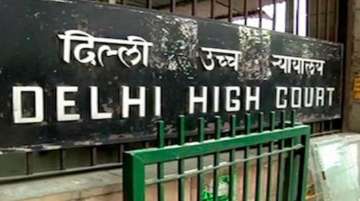Begging not criminal offence: HC
"The root cause is poverty, which has many structural reasons: no access to education, social protection, discrimination based on caste and ethnicity, landlessness, physical and mental challenges, and isolation," the court said.

The Delhi High Court on Wednesday ruled that begging is not a criminal offence and struck down laws penalizing it, saying "criminalising begging violates the most fundamental rights of some of the most vulnerable people in the society."
A bench of Acting Chief Justice Gita Mittal and Justice C. Hari Shankar said that to eradicate begging, artificial means to make beggars invisible will not suffice and a move to criminalise them will make them invisible without addressing the root cause of the problem.
"The root cause is poverty, which has many structural reasons: no access to education, social protection, discrimination based on caste and ethnicity, landlessness, physical and mental challenges, and isolation," the court said.
Catch all the latest news about Lok Sabha elections 2019 HERE
"People in this stratum do not have access to basic necessities such as food, shelter and health, and in addition criminalizing them denies them the basic fundamental right to communicate and seek to deal with their plight."
The court struck down the provisions prosecuting begging under the Bombay Prevention of Begging Act, but the bench maintained a few sections of the Act including Section 11 and Section 30.
Section 11 deals with penalty for employing or causing persons to solicit or receive alms, causing persons or children to solicit or receive alms, or using such persons as exhibits.
Section 30 deals with seizure and disposal of animals exposed or exhibited, for obtaining or extorting alms.
The bench decriminalised begging and said prosecution under the provisions of the Act was "unconstitutional".
"The inevitable sequitur to our decision would be that all prosecutions, under the Act against persons alleged to have committed the offence of begging, would be liable to be struck down," the court said.
"The power to do so would, however, appropriately vest in the courts seized of such prosecutions, and we, therefore, limit ourselves to observing that the fate of such prosecutions, if any, would have to abide by the present judgment, and our observations and findings contained herein."
However, the court granted liberty to the Delhi government to bring in alternative legislation to curb the racket of forced begging after undertaking an empirical examination on the sociological and economic aspect of the matter.
"If the State wishes to criminalize specific types of forced beggary, it has to first think out a clear factual basis and impact thereof to pass a well thought legislation after due application of mind and being mindful of the constitutional rights provided under the Constitution of India," the bench said.
The court was hearing two public interest litigations by Harsh Mandar and Karnika Sawhney to seek basic human and fundamental rights for beggars in the national capital and for decriminalising begging.
The pleas also sought basic amenities such as proper food and medical facilities at all beggar homes in Delhi.
The court also mentioned reports of starvation deaths and challenge of ensuring education to the 6 to 14 year old as hard reality in the national capital and said: "People beg on the streets not because they wish to, but because they need to.
"Begging is their last resort to subsistence, they have no other means to survive. Begging is a symptom of a disease, of the fact that the person has fallen through the socially created net," read the order.